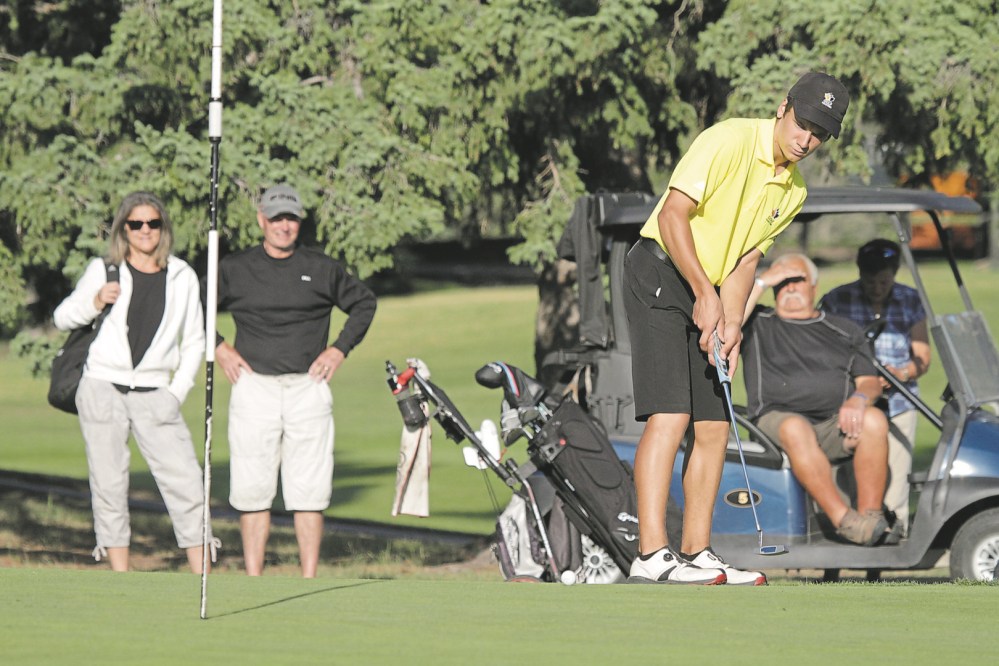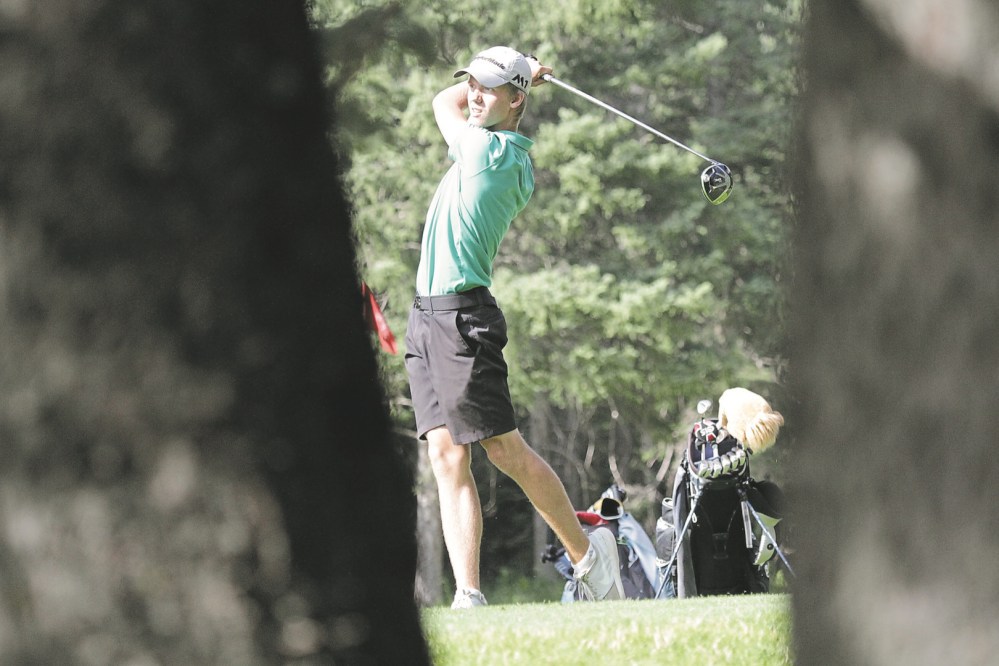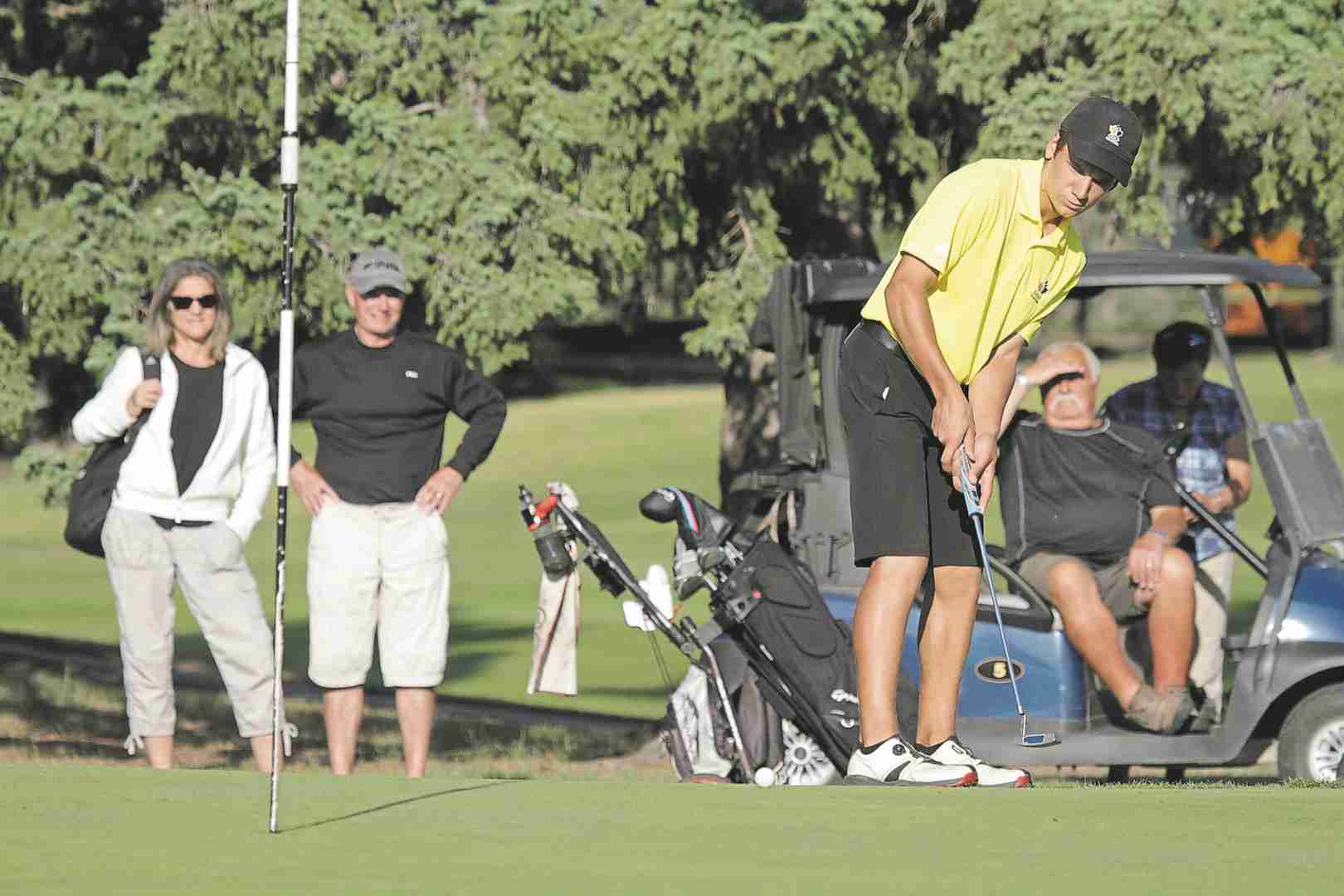Hello, time traveler!
This article was published 04/20/2020 (1349 days ago), so the information it contains may no longer be up to date.
Temperatures and golf course bank accounts move in opposite directions as typical opening dates pass.
At this point, there’s a good chance the majority of Westman courses will be ready to operate, waiting for the province to release them from non-essential business restrictions currently set to expire after April 28.
For one, golf is not “essential” like hospitals and grocery stores. But the ice cream parlors are open and I have yet to see milkshakes or sundaes listed as a necessity in Canada’s Food Guide.

Golf is one of the few sports that can take place within physical distancing guidelines, especially with protocols in place at U.S. courses and many British Columbia tracks, which have been allowed to open at their own discretion.
But to say that Manitoba’s golfing community is all in agreement on whether courses should be allowed to open is as true as Kim Jong-Il’s 38-under-par 34 in his first appearance .
Killarney Lakeside Golf Club general manager and superintendent Chris Brown looks at the first tee from his office window and sees a course almost ready for action and hopes that day comes soon.
“It’s the best run I’ve seen come out of winter in five years,” Brown said.
“For mental health alone, it’s important to get outside and get some fresh air. Not having this ability right now personally harms people’s mental state.
“The chance of being in contact for four hours on a golf course… is 10 minutes, maybe,” he added.
Words matter. Soon after the term “social distancing” became part of our usual discourse, some have pointed out that “physical distancing” is a better concept and encourages more digital interactions with friends and family.
Now, “essential” has become the metric for measuring whether or not businesses can open, and that’s probably not the ideal term.
It seems like there should be a graph with necessity on one axis and risk on the other, with businesses that fall below the line considered eligible to open.
This decision is ultimately up to medical professionals and the province, so classes simply will not reopen unless April 29 arrives and the ban has not been extended further.
Based on messaging from medical professionals about how COVID-19 spreads, it’s fair to say that trips to the grocery store are much more likely to cause spread than rounds of golf when players pay online, do not enter the pro shop, walk or ride alone and don’t touch the flags.
And if the guidelines are executed correctly, players are likely more likely to make a hole-in-one — or bounce the ball on a reverse cut and spark debates about the legitimacy of the shot — than contract the coronavirus on the course.
Although the rules seem simple, courses have long required players to replace or fill divots, rake bunkers and replace ball marks on greens, and an inspection lap around a track after a A busy afternoon of play will prove that the players don’t seem too interested in taking care of the course and respecting others who use it.
Most golf carts state that they should not be used under the influence of alcohol: for some, this is the reason they play golf in the first place.

Patrick Law of the Minnedosa Golf and Country Club said if people want golf to return to western Manitoba, that attitude needs to change when it comes to COVID-19 protocols.
“The most important thing I can stress is that this requires everyone’s cooperation,” Law said.
“If people don’t adhere to the rules put in place by everyone, not just on golf courses but everywhere, this is going to last a long time.”
Brown added: “It’s up to the groups themselves to control that. If we get to the point where we have to control the situation, golf won’t start. I believe that people must act themselves if they want golf to continue and restart. If they don’t follow these guidelines, we’re all dead in the water. »
The Winnipeg Free Press reported last week that the courts were in talks with the province to “get the green light as soon as gatherings of up to 50 people” would be allowed.
Although we still use the term, it is essential that courses generate revenue if they wish to continue operating. Brown is concerned about the future of Killarney Lakeside if the closures continue. He said the potential impact would be “devastating”.
“We’re fortunate to have had success over the last couple of years with some money in the bank, but even that money is dwindling by the day,” Brown said.
“Without our major events, it’s really, really hard to say where we’ll be in three or four months, but it won’t be good. »
Brown said KLGC’s courses cost about $200,000 a year to maintain and total operating costs are between $500,000 and $600,000.
KLGC still has many tournaments booked, but the majority have been postponed to August and September and could still be canceled.
At Gilbert Plains Country Club, 25 minutes west of Dauphin, head professional Scott McCallum won’t be the first to sign a petition declaring golf courses essential.
“The reality is we’re just in a position where we have to respect and be aware of the doctors who are making these decisions. In our daily lives, there is currently a lot of social pressure and many people out of work. I would never want to be the one to prioritize one business over another because everyone is hurting right now,” McCallum said.
“Can golf be played safely while staying six feet apart? I certainly agree that we can achieve this with certain rules and stipulations, but I never want to put ourselves in a position where we think golf courses are more of a necessity than anything else.

Gilbert Plains is set to host the golf event at the 2020 Manitoba Games in August, featuring the province’s top under-14 and under-16 players. Although the event has not been canceled, its loss would result in a drop in revenue budgeted for the tournament and for possible practice sessions in previous weeks.
McCallum pointed out that even if corporate events, stag nights were held, they would not generate the same revenue. Players will need to receive information about their online game in advance and play with minimal interaction with other members before and after rounds.
“A lot of the tournament revenue comes from the meal and social activities after the round,” McCallum said.
Landon Cameron, head professional at Neepawa Golf and Country Club, is cautious about opening, even with strict protocols in place.
“I think it’s definitely possible, but I wonder every day if (golf is) necessary,” Cameron said.
“My biggest fear is spreading it accidentally or unknowingly and having to live with that. It’s something I can’t get out of my head. There’s a good chance we can do it with social distancing, with limited contact, with certain protocols, but what percentage of the population is going to use it, for example?
“If the parks can’t open, you’re just creating a massive argument with the non-golfing population.”
We’ll talk about it again next week.
» Twitter: @thomasmfriesen

